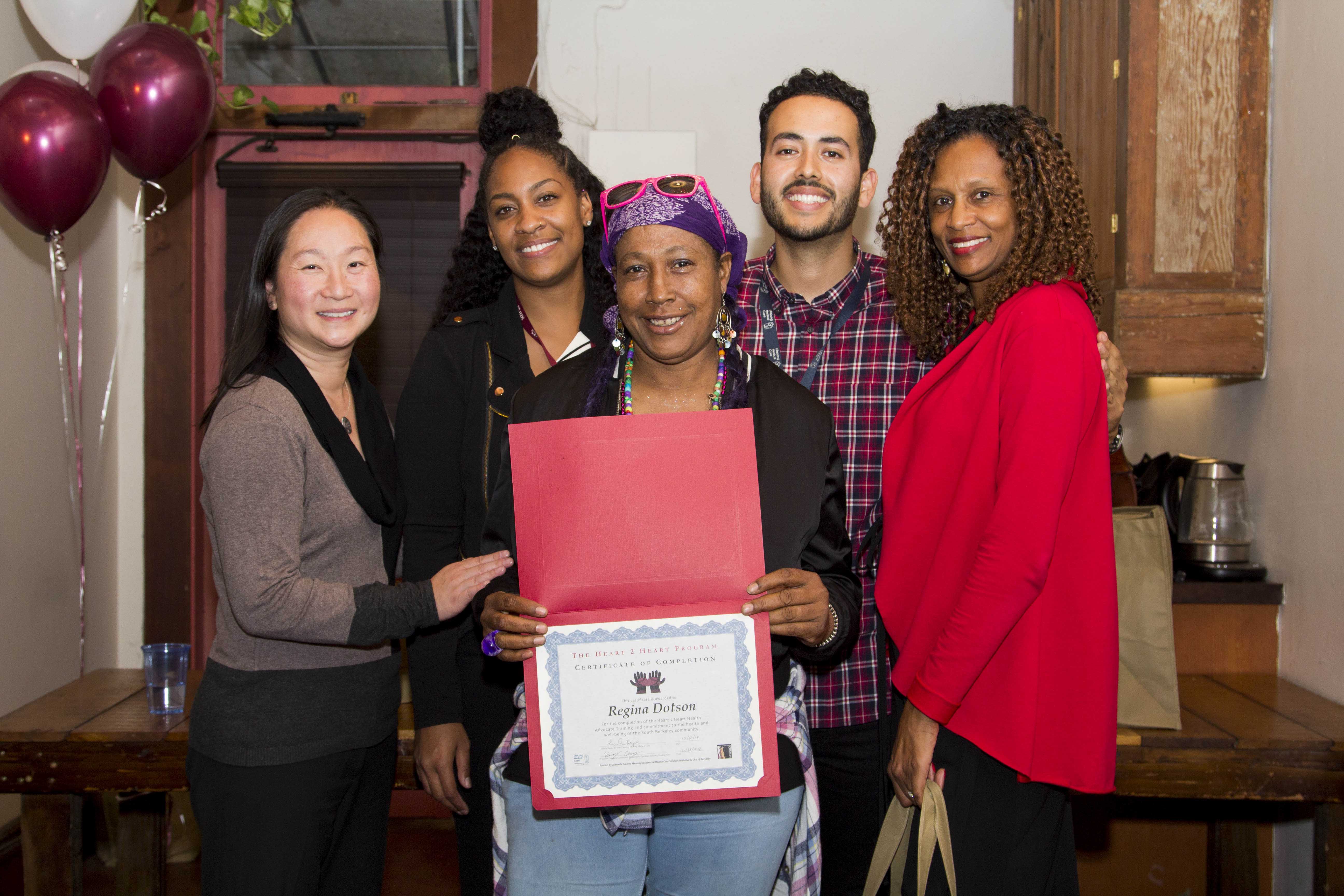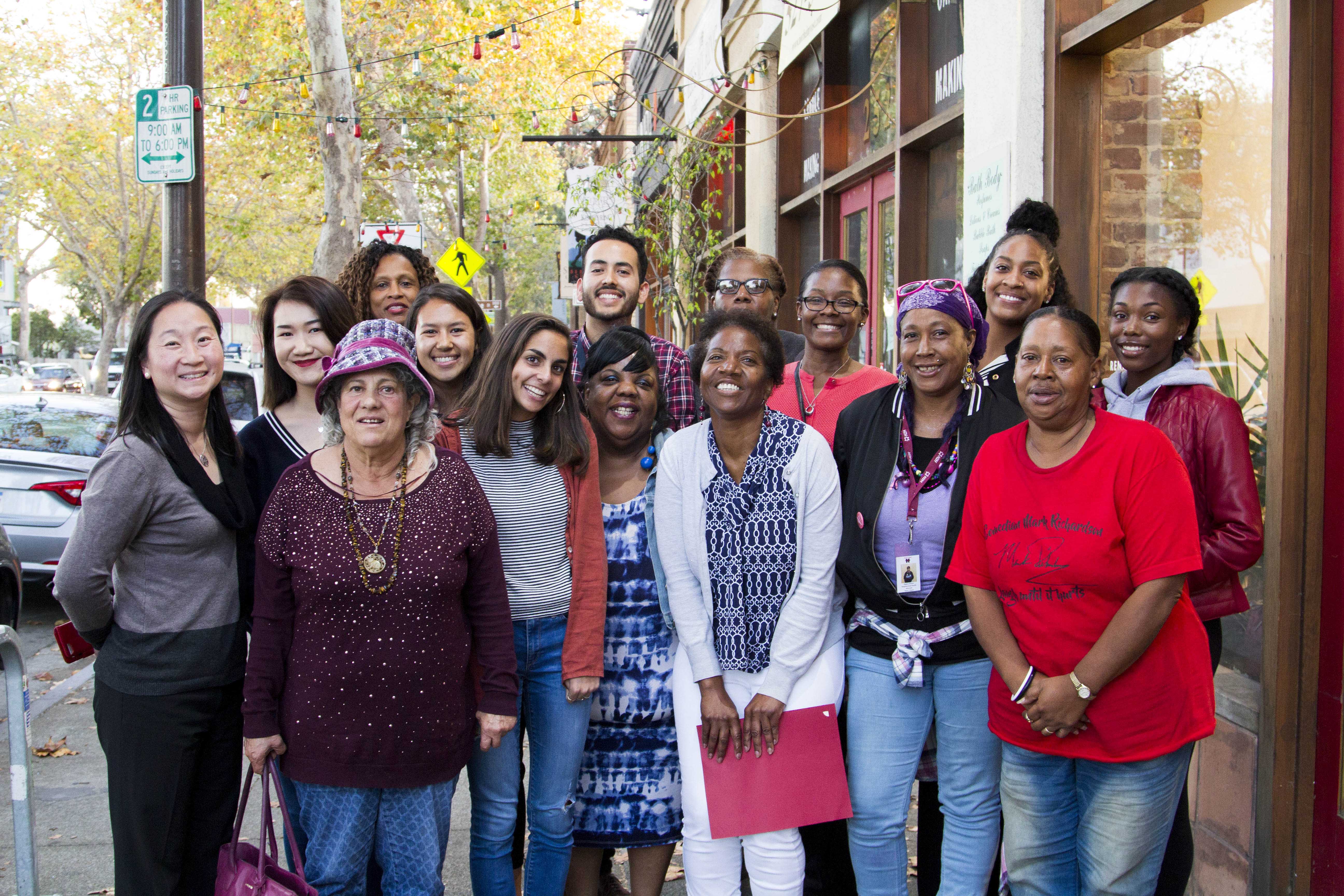Heart 2 Heart Health Advocate Program
The Heart 2 Heart Neighborhood Health Advocate Program continues to fight health disparities related to hypertension and stroke in South Berkeley.
Wednesday October 24th marked the eighth cohort to complete the Heart 2 Heart Neighborhood Health Advocate Training Program. Lucinda Bazile, LifeLong Medical Care’s Deputy Director, and Janice Chen, City of Berkeley’s Public Health Division Manager, were the speakers for the evening. We celebrated with a healthy assortment of refreshments. Heart 2 Heart, a collaboration between the City of Berkeley’s Public Health Division and LifeLong Medical Care, has been training community members to be health advocates for years. The program targets health disparities in Berkeley through the education of community members on how to be effective agents of change in the communities they live, work, play and pray in. Upon graduating, these volunteer community health workers promote healthy behaviors and activities  alongside Heart 2 Heart, or implement targeted health programs of their own.
alongside Heart 2 Heart, or implement targeted health programs of their own.
One Neighborhood Health Advocate (NHA) is focusing their efforts on reproductive health in the local immigrant population, partnering with a local university based club for Latinx pre-health students to effectively target this community. Additionally, there are two more advocates preparing projects with support from the Heart 2 Heart mini-grant program. One, a senior health advocate, has chosen to focus their efforts on dementia in the African American community while the other, one of the most recent graduates, will be holding a number of monthly health sessions about various heart health issues. Collectively, this cohort is setting out to be the most productive the Heart 2 Heart program has seen to date, as many of the other recent graduates have their own ideas for how they can improve local health and well-being.
As noted in the recent release of City of Berkeley’s Health Status Report 2018 (page 68) Heart 2 Heart’s work reducing hypertension and addressing health inequities is more important than ever, with hospitalization rates due to hypertension on the rise among African Americans in Berkeley despite a decline in the general population. As explained in the report, these high rates can be accounted for in part by “increased screening, diagnosis and awareness in the population”, which is supported by the H2H program. The report goes on to say that “attendance at the drop-in hypertension clinic is correlated with lowered blood pressure in residents who attend the clinic consistently (page 68).
These data highlight the continued need for community health services that target high areas of need, such as the H2H free weekly drop in blood pressure clinics. Our regular presence in the community allows for relationship building, and tracking of key health metrics such as blood pressure over time. This enables staff and NHAs to coach residents on how to manage high blood pressure, keep it under control, and ensure a connection to care. Blood pressure tracking cards are updated regularly to monitor outcomes weekly for regular participants. We celebrate successes and connect participants to resources and services needed to get the information, skills and resources needed to control high blood pressure.
With the support of these health advocates, Heart 2 Heart continues to be a successful bridge between community members and Lifelong Medical Care, providing linkages to care and resources whenever and wherever possible.
Health Status Report link:
